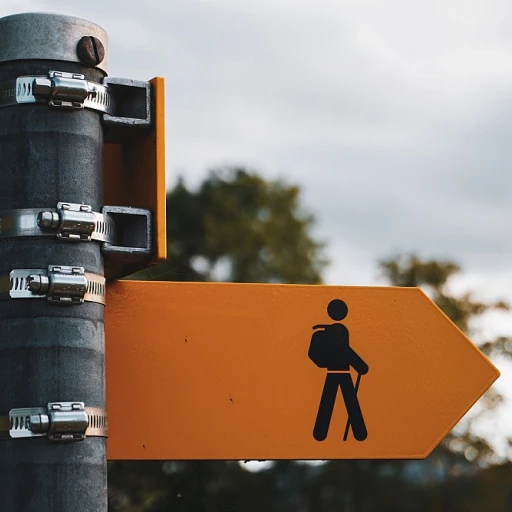
Overseeing Daily Operations
Ensuring the Smooth Flow of Restaurant Operations
Overseeing the day-to-day operations in a bustling restaurant is a key responsibility for a general manager. This entails managing various aspects such as staff, inventory, and customer service to ensure the establishment runs like a well-oiled machine. Effective management of staff is crucial. A restaurant general manager must coordinate and lead the team to deliver high-quality service. This involves ensuring all roles are filled, staff schedules are kept, and everyone understands their responsibilities through clear job descriptions. Managers should possess soft skills to foster a positive work environment and address any issues that arise, ensuring that the front-of-house operations meet high standards. In addition, maintaining an optimal inventory management system is imperative. By overseeing inventory, the general manager can prevent shortages or overstock, which impacts both food quality and financial viability. By analyzing sales data and being involved in menu engineering, the manager can adjust orders and menu offerings to align with customer preferences and business goals. The restaurant industry has a dynamic nature that demands flexibility and quick decision-making from its managers. General managers are tasked with adapting to changing conditions and needs, staying abreast of best practices in health and safety standards, and ensuring that regulatory requirements are consistently met. Ultimately, a successful general manager will integrate these elements into a seamless operation, ensuring guests have a memorable experience. To gain more insights into the overarching responsibilities of a manager in diverse business settings, you may explore the role of a transition manager in entrepreneurship here.Financial Management and Budgeting
Mastering the Financial Aspects of Restaurant Management
Ensuring the financial health of a restaurant is a significant responsibility for a general manager. The ability to manage budget and finances effectively is paramount in ensuring the sustainability and profitability of the establishment. This task demands a thorough understanding of the restaurant's revenue streams, costs, and financial objectives. A key responsibility in this domain involves developing a strategic budget that aligns with the restaurant's goals. This includes projecting expected revenue and correlating it with operational expenses. Understanding labor costs, inventory management, and menu engineering are fundamental components of this process. By effectively managing these financial elements, a manager can enhance overall restaurant operations. General managers must also diligently monitor sales data and analyze it to adjust the menu and pricing strategies. This involves a careful evaluation of menu items, ensuring that each one contributes positively to the bottom line. Working closely with the team, managers can leverage this data to make informed decisions, including introducing new dishes or offering timely promotions. In addition to managing the day-to-day finances, general managers are expected to compile detailed financial reports that highlight the restaurant's financial status. These reports provide insights into areas where cost-saving measures can be implemented or where financial performance can be optimized. Effective financial management not only supports daily operations but also positions the restaurant for long-term success. For more insights on effective strategies in financial management, exploring effective strategies for managing leases in Carolina could provide a broader perspective on optimizing resource use in managing restaurant finances.Staff Recruitment and Training
Building a Strong Team through Recruitment and Training
In the dynamic world of restaurant operations, the role of a restaurant general manager is pivotal in shaping the team that delivers exceptional customer service and maintains smooth daily operations. A key responsibility of general managers is to recruit and train staff effectively, ensuring that the team is equipped with the necessary skills and knowledge to meet the demands of the job.
Recruitment in the restaurant industry requires a keen eye for talent and the ability to identify individuals who possess the right mix of soft skills and technical expertise. General managers must craft a job description that accurately reflects the needs of the restaurant, highlighting the importance of customer service, menu knowledge, and the ability to work under pressure. Once the right candidates are selected, comprehensive training programs should be implemented to ensure that staff are well-versed in menu engineering, inventory management, and health safety standards.
Training is not a one-time event but an ongoing process. Regular workshops and training sessions help staff stay updated on the latest trends in the restaurant industry and enhance their skills in managing customer interactions and ensuring guest satisfaction. This continuous development not only improves the quality of service but also boosts staff morale and reduces labor costs by minimizing turnover.
Moreover, general managers should foster an environment of open communication and teamwork. Encouraging feedback and collaboration among staff members can lead to innovative solutions and improvements in service delivery. By investing in the recruitment and training of a competent team, restaurant general managers can ensure that their establishment stands out in a competitive market.
For more insights on crafting effective communication within your team, consider reading about crafting a heartfelt farewell note to your boss.
Customer Experience Enhancement
Enhancing the Guest Experience
One of the pivotal roles of a restaurant general manager is to ensure an exceptional customer experience. This requires a blend of practical strategies and soft skills, ensuring every guest's visit is memorable. In doing so, managers have to be attuned to the nuances of customer service, working closely with their team to perfect each interaction.
Key responsibilities in this area include:
- Overseeing and refining customer service processes, ensuring that they align with the overall vision of the restaurant.
- Engaging in menu engineering to offer a compelling menu that caters to various tastes, enhancing overall customer satisfaction.
- Incorporating feedback from customers into the daily operations to address gaps in service promptly.
- Managing staff interactions with guests by providing them with the necessary training and tools to handle requests and complaints efficiently.
By prioritizing the guest experience, general managers can drive customer loyalty and foster a positive reputation within the restaurant industry. Every team member plays a critical role in this, from the front house to the back kitchen, ensuring guests leave with a positive impression.
Compliance and Safety Standards
Ensuring Compliance and Safety
In the restaurant industry, maintaining compliance with health and safety standards is a critical responsibility for any general manager. This involves a thorough understanding of the regulations that govern food service operations, from food handling procedures to sanitation requirements. General managers must ensure that their team is well-trained in these areas, as any lapse can lead to serious consequences, including fines or even closure.
One of the key responsibilities of a restaurant general manager is to conduct regular inspections of the premises to ensure that all health safety protocols are being followed. This includes checking that the kitchen and front house areas are clean and that the staff is adhering to proper hygiene practices. Additionally, managers must keep up-to-date with any changes in local health codes and ensure that their restaurant operations are compliant.
Another important aspect of compliance is managing inventory to prevent food waste and ensure that all ingredients are stored correctly. This not only helps in maintaining food quality but also in managing costs effectively. By keeping a close eye on inventory management, general managers can ensure that the restaurant is operating efficiently and safely.
Furthermore, general managers must also focus on staff training to ensure that everyone is aware of the compliance standards. This involves regular training sessions and updates to the job description to reflect any changes in regulations. By fostering a culture of safety and compliance, managers can enhance the overall customer experience and protect the restaurant's reputation.
Marketing and Community Engagement
Building Connections and Promoting Your Establishment
The role of a restaurant general manager extends beyond the confines of the establishment to actively engage with the community and market the restaurant effectively. This requires an understanding of how general operations relate to marketing strategies, and how both can enhance the restaurant's visibility and popularity.
One key aspect is developing a keen awareness of the target demographic. By collecting and analyzing customer data, managers can tailor marketing efforts to attract their core customer base. This is similar to managing daily operations, where data helps make informed decisions to improve customer experience and service.
General managers also play a crucial role in community engagement. By participating in local events or supporting community causes, they can foster goodwill and increase brand loyalty. This is a direct extension of creating a positive customer experience within the restaurant; satisfied customers are more likely to recommend the establishment to others.
Effective marketing also hinges on the presentation of the restaurant's menu. Menu engineering is not just about offering delicious food but also about presenting it in a way that appeals to both new and returning customers. The way a menu is structured can affect a customer's dining choices and ultimately the restaurant's profitability.
Maintaining a vibrant online presence is another responsibility for general managers. By actively engaging with customers on social media platforms and reviewing sites, managers can address feedback, promote menu specialties, and highlight events or promotions.
General managers must balance these external marketing activities with the internal responsibilities of managing staff, ensuring compliance with health safety regulations, and keeping a close eye on inventory management and labor costs. Ultimately, their ability to manage their team effectively and promote their business will play a critical role in the restaurant's success in a competitive industry.













